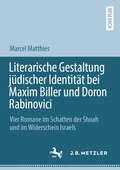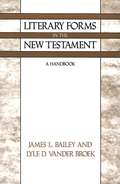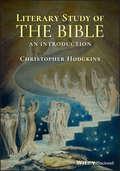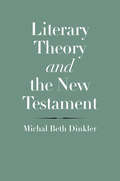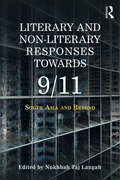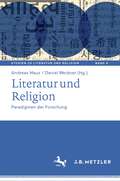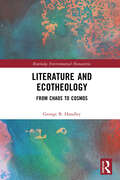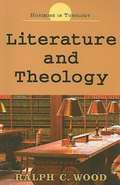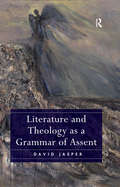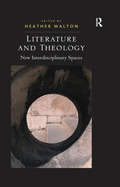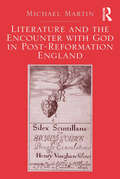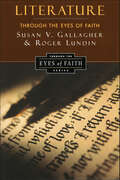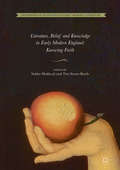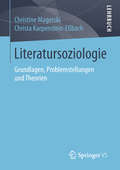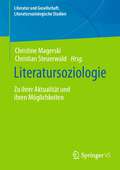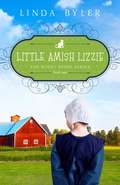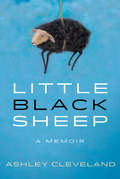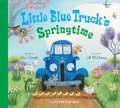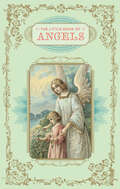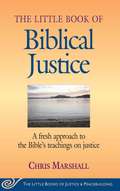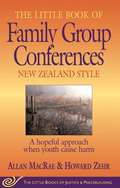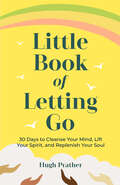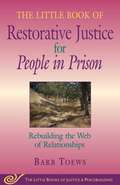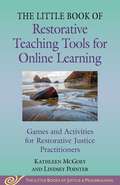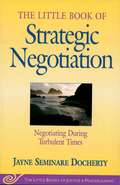- Table View
- List View
Literarische Gestaltung jüdischer Identität bei Maxim Biller und Doron Rabinovici: Vier Romane im Schatten der Shoah und im Widerschein Israels
by Marcel MatthiesDie vorliegende Studie verfolgt das Anliegen, die komplexen und schwierigen Fragen jüdischer Identität und Selbstbeschreibung in der deutsch-jüdischen Gegenwartsliteratur einer fundierten Analyse zu unterziehen. Im Mittelpunkt der Untersuchung stehen Maxim Billers Romane Biografie (2016) und Sechs Koffer (2018) sowie Doron Rabinovicis Roman Andernorts (2010) und der (von ihm in Co-Autorschaft mit Natan Sznaider verfasste) Roman Herzl Relo@ded (2016). Beide viel beachteten Autoren bringen die Fragen innerjüdischen Selbstverständnisses ebenso in den Blick wie sie die Rollen Deutschlands, Österreichs und Israels als Kulissen und Resonanzräume für jüdische Existenz in der Gegenwart thematisieren. Im Zentrum der Interpretationen steht die Fragestellung, wie die jüdische Identitätsthematik in den vier Romanen bearbeitet und literarisch gestaltet wird. Die literaturwissenschaftliche Arbeit sucht die vor allem der Neuheit der Romane geschuldete Forschungslücke mithilfe politischer und soziologischer Theorie, psychoanalytischen und sozialpsychologischen Ansätzen sowie Impulsen aus der Gedächtnis- und Ideengeschichte zu schließen.
Literary Forms in the New Testament
by James L. Bailey Lyle D. Vander BroekTwo seminary teachers introduce to incoming students the specific literary forms that appear in the New Testament. Each article defines a common literary form, gives numerous examples, suggests ways in which knowledge of the form is helpful in interpretation, and offers an annotated bibliography for the specific form discussed. There is an exegetical emphasis throughout. Annotation c. by Book News, Inc. , Portland, Or.
Literary Study of the Bible: An Introduction
by Christopher HodgkinsThe most comprehensive and accessible introduction to scriptural art yet written Literary Study of the Bible: An Introduction approaches each book of the Bible (including several of the apocrypha) with non-sectarian literary questions, exploring the meanings that the Bible reveals when we read it like a poem, narrative, or play. As a unique hybrid of introductory guide, essential handbook, historical survey, and absorbing commentary, this book fills a gap in literary Bible study with its fresh perspectives on the biblical writers’ many arts. Readers will engage in wide range of textual approaches and interpretive traditions through this broadly informed, accessibly written text. Dr. Christopher Hodgkins has taught Literary Study of the Bible for 25 years, over which time he has field-tested the many lenses—of genre, image, language, characterization, plot, and craft—used throughout this book. Tracing the sources, composition, and influences of the Biblical text, this book places the Bible in a tradition of ancient near eastern, Hebrew, and Hellenistic literary art, giving new depth to the way we understand the familiar stories of scripture. Unlike other literary introductions to the Bible, this book uniquely combines these elements: Approaches the Bible as a richly collaborative and coherent work of literary art, exploring how earlier books influence the creation and interpretation of later ones Provides illuminating commentary supplemented by explanatory textboxes, maps, illustrations, and study questions to enhance interest and expand learning Introduces poetic and narrative devices like doubling, juxtaposition, and irony within the context of scriptural art and editorial design Gives extensive attention to each biblical book, resulting in the most comprehensive introduction to literary Bible study to date Presents these materials through an accessible and lively text permeated with references to both high and popular culture Literary Study of the Bible will be a welcome addition to personal, school, college, and congregational libraries, as well as an excellent text for students of the Bible in both secular and faith-based settings.
Literary Theory and the New Testament (The Anchor Yale Bible Reference Library)
by Michal Beth DinklerA comprehensive case for a fresh literary approach to the New Testament For at least a half century, scholars have been adopting literary approaches to the New Testament inspired by certain branches of literary criticism and theory. In this important and illuminating work, Michal Beth Dinkler uses contemporary literary theory to enhance our understanding and interpretation of the New Testament texts. Dinkler provides an integrated approach to the relation between literary theory and biblical interpretation, employing a wide range of practical theories and methods. This indispensable work engages foundational concepts and figures, the historical contexts of various theoretical approaches, and ongoing literary scholarship into the twenty-first century. In Literary Theory and the New Testament, Dinkler assesses previous literary treatments of the New Testament and calls for a new phase of nuanced thinking about New Testament texts as both ancient and literary.
Literary and Non-literary Responses Towards 9/11: South Asia and Beyond
by Nukhbah Taj LangahThis book presents a range of analytical responses towards 9/11 through a critical review of literary, non-literary and cultural representations. The contributors examine the ways in which this event has shaped and complicated the relationship between various national and religious identities in contemporary world history. Unlike earlier studies on the topic, this work reconciles both eclectic and pragmatic approaches by analyzing the stereotypes of nationhood and identities while also questioning theoretical concepts in the context of the latest political developments. The chapters focus on discourses, themes, imagery and symbolism from across fiction and non-fiction, films, art, music, and political, literary and artistic movements. The volume addresses complexities arising within different local contexts (e.g., Hunza and state development); surveys broader frameworks in South Asia (representations of Muslims in Bollywood films); and gauges international impact (U.S. drone attacks in Islamic countries; treatment meted out to Muslims in Europe). It also connects these with relevant theories (e.g., Orientalism) and policy perspectives (e.g., Patriotic Act). The authors further discuss the consequences for minorities and marginalization, cultural relativism vs. ethnocentrism, the clash of civilizations, fundamentalism, Islamization and post-9/11 ‘Islamophobia’. This book will be useful to scholars and researchers of South Asian literature, Islamic studies, literary criticism, political sociology, anthropology and cultural studies, those in the media and the general reader.
Literatur und Religion: Paradigmen der Forschung (Studien zu Literatur und Religion / Studies on Literature and Religion #6)
by Daniel Weidner Andreas MauzIn den letzten Jahren hat sich die Forschung zu den Beziehungen von Literatur und Religion unverkennbar intensiviert. Der vorliegende Band unterzieht sie einer Bestandsaufnahme und fragt nach den Paradigmen, die diese Arbeiten geleitet haben und leiten. Welche Fragen stellt die Forschung – welche nicht (mehr)? Welche theoretischen und methodischen Orientierungen bestimmen den Diskurs? Wie könnte er sich in Zukunft entwickeln? Lassen sich disziplinäre oder auch interdisziplinäre Paradigmenwechsel ausmachen? Die Beiträge rekonstruieren die Forschungsgeschichte etwa zum Trauerspiel, zu Klopstock oder zum antiken Roman und geben Überblicke über breitere Diskurse wie die literaturwissenschaftlich orientierten Bibelwissenschaften, die religionsbezogene Comic-Forschung oder die US-amerikanische Debatte über „Literature and Religion“.
Literature and Ecotheology: From Chaos to Cosmos (ISSN)
by George B. HandleyLiterature and Ecotheology: From Chaos to Cosmos challenges us in a time of climate crisis to find more common ground between the dual projects of ecocriticism and ecotheology.This book argues that in our postsecular age, literature has become an important repository of theological wisdom that can, like formal work in ecotheology, provide the moral grounds for environmental care. However, for any cosmological understanding to be adequate to the challenges before us, it must be responsive to the often-painful contingencies and uncertainties that inhere in the cosmos, something that both ecocriticism and ecotheology have often neglected. After a treatment of the ecocritical and ecotheological questions that pertain to the religious/secular divide, the study then turns to four contemporary American writers—Annie Dillard, Cormac McCarthy, Marilynne Robinson, and David James Duncan—as examples. Each uses the contingency of literary form and its promise of wholeness in order to imagine reasons for hope in light of the unpredictability and untold human and more-than-human suffering that lie at the heart of nature.The book will be of interest to students, scholars and researchers interested in ecotheology, religious studies, environmental literature, the environmental humanities, and environmental studies more broadly. It offers a needed paradigm shift in how Western societies have tended to misuse both secularity and religion.
Literature and Theology (Horizons In Theology Ser.)
by Ralph C. WoodLiterature and Theology is a volume in the Horizons in Theology series. It offers a highly engaging essay on the major concerns and questions regarding literature (fiction and poetry) as it intersects with theology—past and present. Ralph Wood is a senior scholar in this field, one who is able to address in a clear and concise style the scope and contours of this question as it relates to theological inquiry and application. He opens the broader lines of discussion in suggestive, evocative, and programmatic ways by focusing on representative and core literary texts. Horizons in Theology serve as supplements and secondary required texts in colleges and seminaries, as well as the interested nonspecialist reader.
Literature and Theology as a Grammar of Assent
by David JasperExamining the roots of the relationship between literature and theology, this book offers the first serious attempt to probe the deep theological purposes of the study of literature. Through an exploration of themes of evil, forgiveness, sacrament and what it means to be human, David Jasper draws from international research and discussions on literature and theology and employs an historical and profoundly personal journey through the later part of the last century up to the present time. Combining fields such as bible and literature, poetry and sacrament, this book sheds new light on how Christian theology seeks to remain articulate in our global, secular and multi-faith culture.
Literature and Theology: New Interdisciplinary Spaces (Manchester Studies In Religion, Culture And Gender Ser. #No. 5)
by Heather WaltonThis book explores current trends in the interdisciplinary study of literature and theology - an area of academic activity that has developed dramatically in the past twenty years. The field of study originated from the impetus to embrace the richness of imaginative resources in theological reflection and was stimulated by the re-emergence of the sacred in contemporary theory. Since the mid '90s critical theory has undergone a number of significant transformations, theology has become a subject of public concern and the boundaries between sacred and cultural texts have become increasingly unstable. This book brings together the work of leading scholars in the field with that of emerging voices. Offering an important resource for the growing number of postgraduate courses exploring the relation between religion and culture in the contemporary context, this book delineates current trends in interdisciplinary debate as well as tracing emerging configurations.
Literature and the Encounter with God in Post-Reformation England: Literature And The Encounter With God In Post-reformation England, C. 1550--1704
by Michael MartinEach of the figures examined in this study”John Dee, John Donne, Sir Kenelm Digby, Henry and Thomas Vaughan, and Jane Lead”is concerned with the ways in which God can be approached or experienced. Michael Martin analyzes the ways in which the encounter with God is figured among these early modern writers who inhabit the shared cultural space of poets and preachers, mystics and scientists. The three main themes that inform this study are Cura animarum, the care of souls, and the diminished role of spiritual direction in post-Reformation religious life; the rise of scientific rationality; and the struggle against the disappearance of the Holy. Arising from the methods and commitments of phenomenology, the primary mode of inquiry of this study resides in contemplation, not in a religious sense, but in the realm of perception, attendance, and acceptance. Martin portrays figures such as Dee, Digby, and Thomas Vaughan not as the eccentrics they are often depicted to have been, but rather as participating in a religious mainstream that had been radically altered by the disappearance of any kind of mandatory or regular spiritual direction, a problem which was further complicated and exacerbated by the rise of science. Thus this study contributes to a reconfiguration of our notion of what ’religious orthodoxy’ really meant during the period, and calls into question our own assumptions about what is (or was) ’orthodox’ and ’heterodox.’
Literature through the Eyes of Faith: Christian College Coalition Series (Through the Eyes of Faith)
by Susan V. Gallagher Roger LundinThis comprehensive study, cosponsored by the Christian College Coalition, addresses questions faced by students in introductory literature courses. It examines literature as a form of human action and argues that the reading and writing of literary works provide vital ways for men and women to act as responsible agents in God's world.Building upon the doctrine of Creation, the authors show how the reading of literature helps us to be more effective interpreters of the stories and images we encounter daily. They demonstrate that great works of literature open up a realm of beauty and truth and help us gain an understanding of ourselves, God, and the world.
Literature, Belief and Knowledge in Early Modern England: Knowing Faith (Crossroads Of Knowledge In Early Modern Literature Ser. #1)
by Subha Mukherji Tim Stuart-ButtleThe primary aim of Knowing Faith is to uncover the intervention of literary texts and approaches in a wider conversation about religious knowledge: why we need it, how to get there, where to stop, and how to recognise it once it has been attained. Its relative freedom from specialised disciplinary investments allows a literary lens to bring into focus the relatively elusive strands of thinking about belief, knowledge and salvation, probing the particulars of affect implicit in the generalities of doctrine. The essays in this volume collectively probe the dynamic between literary form, religious faith and the process, psychology and ethics of knowing in early modern England. Addressing both the poetics of theological texts and literary treatments of theological matter, they stretch from the Reformation to the early Enlightenment, and cover a variety of themes ranging across religious hermeneutics, rhetoric and controversy, the role of the senses, and the entanglement of justice, ethics and practical theology. The book should appeal to scholars of early modern literature and culture, theologians and historians of religion, and general readers with a broad interest in Renaissance cultures of knowing.
Literatursoziologie: Grundlagen, Problemstellungen und Theorien (Studien Und Texte Zur Sozialgeschichte Der Literatur Ser. #101)
by Christine Magerski Christa Karpenstein-EßbachDas Buch führt umfassend in die Literatursoziologie und damit in die gesellschaftlichen Aspekte der Literatur, ihrer Rezeption sowie ihrer Produktion ein.
Literatursoziologie: Zu ihrer Aktualität und ihren Möglichkeiten (Literatur und Gesellschaft. Literatursoziologische Studien)
by Christine Magerski Christian SteuerwaldDas Buch eröffnet die Reihe „Literatur und Gesellschaft“ und bietet mit seinen literatursoziologischen Studien einen vertieften Einblick in die aktuellen Themen und Paradigmen der deutschsprachigen Literatursoziologie. Die Beiträge reichen von der kritischen Lektüre fiktionaler, semifiktionaler und theoretischer Texten über die Erprobung neuer Perspektivierungen aus den Kultur-, Medien- und Kommunikationswissenschaften einschließlich der Digital Humanities bis hin zu ersten Entwürfen einer Soziologie der literarischen Bewertung und des Schauspiels sowie einer Literatursoziologie der technischen Existenzweise.
Little Amish Lizzie (The Buggy Spoke Series #1)
by Linda BylerLizzie is a five-year-old Amish girl in Lancaster, Pennsylvania. She is spunky, sensitive, and not nearly as pious as her older sister Emma. Lizzie sometimes daydreams instead of praying when she bows her head before meals . . . but she figures God knows she’s grateful for the good food Mam puts on the table every night. Her wild spirit often gets her in trouble, though, and she wonders why she can’t be as sweet and kind as her goody-two-shoes big sister. Will she always be at odds with her own fiery spirit? Although Lizzie loves adventure, when her father’s business begins to struggle and she learns they’re moving to a new house in a different town, all she wants is to stay in the beloved home she knows with the little picket fence, the bubbling creek, and her favorite climbing trees. Through Linda Byler’s vivid descriptions of Amish life, you can walk with Lizzie as she adjusts to a new school, experience the terror of their awful buggy accident, laugh at her misadventures, and feel her struggle as she begins to question who she is as an individual in the midst of her tight knit Amish community. This is the first book in the Buggy Spoke series, which follows Lizzie through her tumultuous teenage years as she struggles to mesh her hot temper and willful ways with her Amish faith. These books are the prequels to Linda Byler’s bestselling Lizzie Searches for Love Trilogy, geared to a younger audience (ages 8-10). Reminiscent of Laura Ingalls Wilder’s Little House series, these books are delightful accounts of another way of life; each chapter is filled with vivid descriptions of Amish food, farms, and traditions. The series explores themes of respecting parents, not fitting in, sibling rivalry, recognizing your own shortcomings and gifts, and reconciling a strong personality with an abiding faith.
Little Black Sheep
by Ashley Cleveland"This is the story of the groundwork that paved the way to my faith. It is not an easy story to tell...." This powerful memoir from Grammy Award winner Ashley Cleveland reminds us that even in the lowest times of our lives, beauty can shine through. As a young woman from a deeply flawed family, Ashley had little hope she would amount to anything. If there was trouble, near or far, she found it. Yet, in her destructive days of drugs, alcohol, and sex, she encountered a forgiving God who was relentlessly faithful. Change did not come quickly. The brokenness did not disappear. But little by little, Ashley allowed God to heal her, to transform her desires, to bring courage to others through her journey. Little by little, she saw that it was her brokenness itself that God wanted to use. This beautifully told story will take you from the back rooms of Nashville to the churches of the San Francisco Bay area to a tender new life where one woman discovers that God can work in broken places.
Little Blue Truck's Springtime (Little Blue Truck Ser.)
by Alice Schertle Jill McElmurryCelebrate springtime with Little Blue Truck! Young fans will love finding all kinds of baby animals by tapping on the images in this delightful interactive book.
Little Book of Angels
by Nicole MassonThe follow-up to The Little Book of Saints, this treasure of a book is an ode to angels in their many forms. The stories of angels as divine messengers, faithful guardians, and mystical celestial beings offer readers inspiration and comfort. Beautifully illustrated with color lithographs from missals and prayer books, and elegantly packaged with a padded cover, gilded edges, and a ribbon marker, The Little Book of Angels makes a special gift for any religious or spiritual occasion--or for anyone who would welcome an angel to help guide their way.
Little Book of Biblical Justice: A Fresh Approach To The Bible's Teachings On Justice
by Chris Marshall"The purpose of this Little Book is to identify some characteristic features of the Bible's teaching on justice. "The Bible has had a profound impact on the development of Western culture. So exploring biblical perspectives on justice can help us appreciate some of the convictions and values that have helped shape Western political and judicial thought. "Christians also regard the Bible as a uniquely important source of guidance on matters of belief and practice. What the Bible has to say about justice, therefore -- both social justice and criminal justice -- ought to be of great significance for Christian thought and action today. "Yet coming to grips with biblical teaching on justice is by no means easy." Upfront, Marshall addresses the many complexities that surround "justice" in the Bible: the Bible seems to hold conflicting points of view; there is a huge amount of data to deal with; the world of the Bible and our present world are vastly different. Marshall's honest treatment of this subject is direct, yet almost lyrical in tone. He manages a thorny, multi-faceted subject clearly and ultimately singles out the broad areas of theological agreement among the Bible's writers. Highly stimulating. Highly inspirational.
Little Book of Family Group Conferences New Zealand Style: A Hopeful Approach When Youth Cause Harm
by Allan MacRaeFamily Group Conferences (FGCs) are the primary forum in New Zealand for dealing with juvenile crime as well as child welfare issues. This third volume in The Little Books of Justice and Peacebuilding Series is about the juvenile justice system that is built around these conferences. Since their introduction in New Zealand, Family Group Conferences have been adopted and adapted in many places throughout the world. They have been applied in many arenas including child welfare, school discipline, and criminal justice, both juvenile and adult. In fact, FGCs have emerged as one of the most promising models of restorative justice. This Little Book describes the basics and rationale for this approach to juvenile justice, as well as how an FGC is conducted. A title in The Little Books of Justice and Peacebuilding Series.
Little Book of Letting Go: 30 Days to Cleanse Your Mind, Lift Your Spirit, and Replenish Your Soul
by Hugh PratherLearn how to let go of the blocks that interfere with experiencing our natural state of wholeness, joy, and peace with this practical guide.Let it go and shed what weighs you down. From long-harbored guilt to deep-rooted prejudices, many of us bear the weight of harmful tendencies in our daily lives. Whether we realize it or not, these things are actively holding us back from the happiness we long to attain. In this inspirational book, minister and counselor Hugh Prather provides a guide for mental cleansing. It is only in ridding our minds of the fear and judgments we cling to that we open the door for happiness.Embrace opportunities as they come. The more we hold on to, the less room we have to take on more. If our minds are clouded by negativity, then we aren’t facing each day with the openness that it deserves. By facing each moment with enthusiasm, we pave the path for positive thinking and make the most out of every opportunity that comes our way.Practical exercises and lasting tools. Changing how we think takes practice. This is why Prather doesn’t just tell us that it’s important to let go—he shares with us simple steps for how to go about letting go of things that hold us back. Through learning from Prather’s shared experiences and adopting the practices he offers, we can find happiness, peace, and a chance at spiritual renewal.Inside discover:A simple 3-step process for letting goA thirty-day plan for spiritual renewalPersonal stories from PratherReaders of Letting Go: The Pathway of Surrender, It’s All Under Control, The Art of Happiness, or Love is Letting Go of Fear, will love Little Book of Letting Go.
Little Book of Restorative Justice for People in Prison: Rebuilding The Web Of Relationships (The\little Books Of Justice And Peacebuilding)
by Barb ToewsRestorative justice, with its emphasis on identifying the justice needs of everyone involved in a crime, is helping restore prisoners' sense of humanity while holding them accountable for their actions. Toews, with years of experience in prison work, shows how these practices can change prison culture and society. Written for an incarcerated audience, and for all those who work with people in prison, this book also clearly outlines the experiences and needs of this under-represented part of our society. A title in The Little Books of Justice and Peacebuilding Series.
Little Book of Restorative Teaching Tools for Online Learning: Games and Activities for Restorative Justice Practitioners (Justice and Peacebuilding)
by Lindsey Pointer Kathleen McGoeyCreating Restorative Learning Experiences Online Teaching, training, and gathering online has become a global norm since 2020. Restorative practitioners have risen to the challenge to shift restorative justice processes, trainings, and classes to virtual platforms, a change that many worried would dilute the restorative experience. How can people build relationships with genuine empathy and trust when they are not in a shared physical space? How can an online platform become an environment for people to take risks and practice new skills without the interpersonal support available when meeting face to face? This book provides instructions for experiential games and activities that are intentionally designed for online learning spaces. It builds upon the core concepts of restorative pedagogy introduced in The Little Book of Restorative Teaching Tools (2020) to guide trainers and facilitators to overcome perceived limitations of virtual training and lean into the tools and possibilities that are unique to online spaces to create meaningful, engaging restorative learning environments. This guide is a valuable resource for anyone seeking to build community and foster development of restorative justice knowledge and skills via online platforms. The games and activities included support building relationships, introducing the restorative justice philosophy, practicing key skills, and understanding and addressing structural and racial injustices. More resources are available at restorativeteachingtools.com.
Little Book of Strategic Negotiation: Negotiating During Turbulent Times
by Jayne DochertyMost books on negotiation assume that the negotiators are in a stable settintg. But what about those far thornier times when negotiation needs to happen while other fundamental factors are in uproarious change- deciding which parent will have custody of their child while a divorce is underway; bargaining between workers and management during the course of a merger and downsizing; or establishing a new government as a civil war winds down. From Docherty's experiences in environmental/public policy negotiations and community development work. A title in The Little Books of Justice and Peacebuilding Series.
